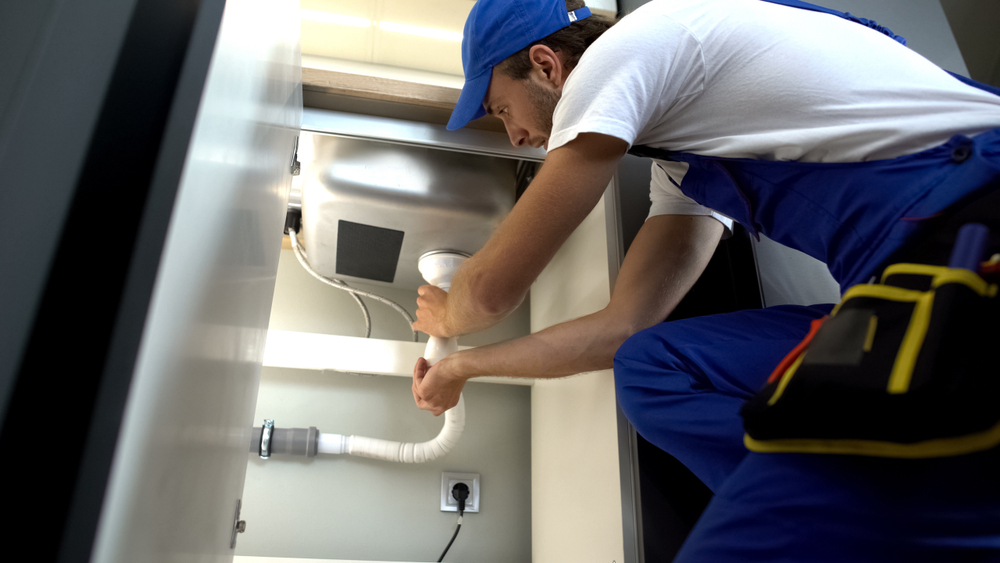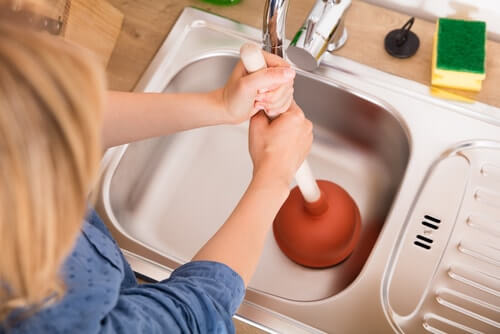Emergency Plumbing Fixes to Use Until Specialist Help Arrives
Emergency Plumbing Fixes to Use Until Specialist Help Arrives
Blog Article
Each person maintains his or her own perception on the subject of What to Do During a Plumbing Emergency.

Pipes emergencies can strike at any time, causing stress and potential damage to your home. Whether it's a burst pipeline, a clogged up drain, or a leaking tap, knowing just how to manage the situation up until an expert plumbing professional gets here can save you from further complications. This write-up provides vital emergency pipes pointers to help you alleviate damages and restore control throughout a pipes crisis.
Shut off the Water
The initial step in any type of pipes emergency situation is to shut off the water system. For local concerns, such as a leaking faucet or bathroom, shut off the shutoff near the fixture. When it comes to a major leakage or burst pipeline, situate your home's main water shut-off valve and transform it off instantly. Recognizing the area of these valves in advance can conserve important time during an emergency situation.
Address Small Leaks with Short-lived Fixes
Small leaks can promptly end up being significant issues if left uncontrolled. Utilize these short-term solutions until expert aid arrives:
While these fixes aren't irreversible, they can assist decrease water loss and damage.
Unclog Drains Pipes Safely
A clogged up drain can be a discouraging and messy problem. Below's exactly how to tackle it:
If these methods don't work, stay clear of using extreme pressure, as it might intensify the obstruction.
Take Care Of Overflowing Toilets
An overflowing bathroom can create prompt chaos. Right here's what you must do:
Turn off Your Hot Water Heater
In certain emergencies, such as a ruptured pipeline, it's wise to turn off your hot water heater. This protects against getting too hot or damage to the system when water quits moving. Switch off the power supply to the water heater (electric or gas) and allow it cool off to prevent prospective threats.
Momentarily Stop a Burst Pipe
A burst pipeline can bring about substantial water damages in mins. To mitigate the issue:
Call an expert plumbing instantly to deal with the problem permanently.
Take Care Of Frozen Water Lines Very Carefully
In chillier climates, icy pipelines are a typical emergency. If you suspect an icy pipe:
Prevent Additional Damages
Taking fast action to reduce damage can conserve you money and time over time. Below's just how:
. Have an Emergency Situation Pipes Kit
Prepare a standard pipes emergency package to manage small problems efficiently. Your package must include:
Having these devices on hand can make a substantial difference in your capacity to handle emergency situations.
Know When to Call an Expert.
While quick fixes can help temporarily, particular plumbing problems require prompt professional focus. Call a plumbing if:.
Without delay getting in touch with a specialist ensures the problem is resolved appropriately and avoids more complications.
Final thought.
Pipes emergencies can be overwhelming, however with the best expertise and tools, you can handle the circumstance properly until assistance gets here. By turning off the supply of water, attending to tiny leaks, and using momentary solutions, you can minimize damage and keep your home safe. Bear in mind, these pointers are temporary services; always get in touch with an accredited plumbing professional to handle the origin of the problem. Preparation and fast reasoning are your ideal allies in any plumbing emergency.
8 Helpful Tips for Managing Plumbing Emergencies at Home
If your plumbing system hasn’t failed once, wait for it because almost everyone has a story to tell. Sometimes, it could be simple emergencies such as a leaking pipe, a blocked cistern, or even a big burst pipe. In situations like this, you need to have some handy tips to save you some money and from possible damages.
Take care of minor issues early.
Sometimes, you could have avoided an emergency by taking proactive measures while it was still early. Some major plumbing emergencies can be a result of an ignored minor issue. We recommend that you have items like plumbing tapes and other related items. A plumbing tape can allow you to manage minor leaks before the plumber arrives.
Cut off the water supply.
This tip is essential in almost any type of leakage problem. For problems like minor leakages in the toilet or kitchen, turn off the supply that takes water to the affected pipes. If the leakage is a major pipe, you must shut off the supply valve to the entire building. This will help you avoid flooding your home and neighbors if you share a flat.
Know your plumbing system
Folks typically move into a new apartment without understanding the water supply around the building. This can prove disastrous if a water emergency arises and the plumber is far away. The previous tip will prove useless if you don’t practice this one. More importantly, know where your water shut-off valve is located – you’ll need that knowledge to prevent potential home floods.
Have some common handy tools
There are lots of plumbing emergencies that you can handle without hiring a plumber. That’s why you must keep some tools available always. Some tools that you can use to fix simple plumbing emergencies easily include plumbing tapes, screwdrivers, thread seal tapes, plungers, pliers, tape measures, and rubber gloves.
Insulate your pipes from cold
You’ll save yourself from many plumbing expenses if you protect your water pipes from the cold. This is because of the harmful effects that cold weather can have on your pipes. During winter, your pipes can burst from being overly expected to freezing temperatures. So, make sure insulators are there to keep the pipes working correctly.
Avoid practices that will clog your toilet.
Many people indulge in practices that can damage the plumbing system of the entire building. One of these is when they use their toilet to dispose-off garbage. They flush all kinds of things, such as paper towels, bandages, hairs, female sanitary products, etc., down the toilet. This will block your toilet in the long run, incurring unnecessary expenditures. Dump such waste in the trash instead.
Check your dials regularly.
Sometimes, there could be leakages in your home without noticing them in time. So, constantly monitor your water meter dial. If the dial is reading when there is nobody using water, this is an indicator that there is leaking. Check for leaks immediately. Call a plumber as soon as possible if you can’t find any.
https://www.constructionplacements.com/8-helpful-tips-for-managing-plumbing-emergencies-at-home/

I hope you enjoyed our part on Expert Tips for Emergency Plumbing Repairs. Many thanks for finding the time to browse our piece of content. For those who enjoyed reading our article plz consider to pass it around. We truly appreciate reading our article about .
Request Service Report this page